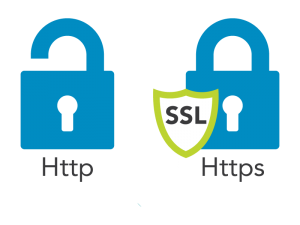17
Protecting Your Practice Online
Today’s patients are educated, tech savvy, and expect a certain level of privacy to be maintained when browsing the web.
So too are data thieves. According to the Privacy Rights Clearinghouse, the number of records breached in the Healthcare industry doubled from 6.1 million in 2017 to 13.7 million in 2018.1 So how can you instill a level of trust online, equal to what your patients experience while in your office? Start with SSL certificates.
What is SSL?
SSL, or Secure Sockets Layer, is a secure protocol that encrypts data between a client and server to help ensure the integrity and confidentiality of the shared data. SSL is an industry standard, which is deployed on millions of websites. SSL keeps data shared between the client and server encrypted, and requires decryption of data before the information can be read. Typically, the data transferred between the client and server is in plain text using Hypertext Transfer Protocol (HTTP), which allows for bad actors or malicious users to eavesdrop on the session and potentially steal personal information. When an SSL certificate is installed, all connections to the website occur on Hypertext Transfer Protocol Secure (HTTPS), protecting the data transmitted and preventing bad actors from malicious activity.
How SSL works
Think of when a patient visits your practice. The first thing you need them to do is to identify themselves by presenting their ID. You view their ID, verify it is indeed the correct patient, and then hand the ID back and begin communicating about treatment. The same process occurs online. The browser used by your patient asks the server to identify itself. The server then provides the browser with a copy of its SSL certificate, which the browser validates. Once this verification process is complete, communication between the two parties is encrypted and a secure connection is established over HTTPS.
Why use SSL?
SSL provides your website with a professional look and improves the performance of your website by taking advantage of next-generation technology. Adding an SSL Certificate to your practice website will not only strengthen the security of your website, but also provide search benefits, helping people find your website in the first place.
Back in 2014, Google announced that it would give ranking priority to websites that have an SSL certificate.2 On the other end of the spectrum, Google labels a website with no SSL as insecure and warns a user before they enter it. Imagine being a patient going to a practice website for the first time and receiving a warning message before reaching the home page. This isn’t the first impression that a patient wants to have of your business, and click volume is certain to suffer.
SSL provides a secure, encrypted connection to your practice website, provides a boost to your SEO rankings, and assures your patients that their personal data is safe. As threats continue to rise, and patients continue to demand a higher level of security for their personal information, SSL will become even more critical for your practice website.
Contact your hosting provider or Sesame today to find out more about what an SSL certificate can do for your practice.
References:
1. Privacyrights.org

